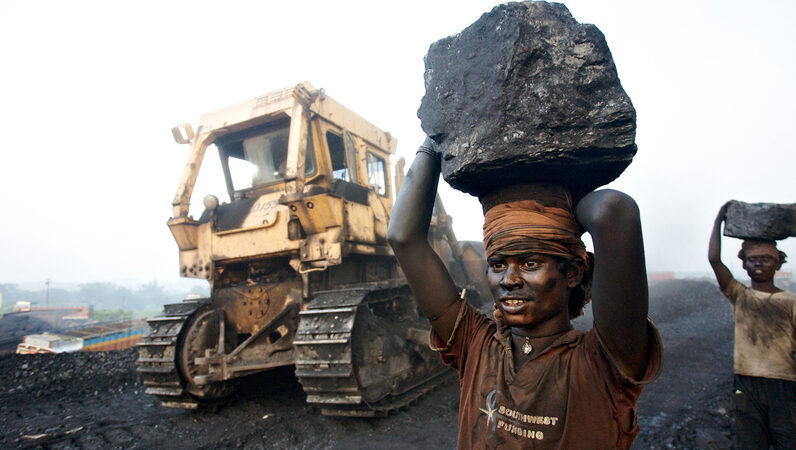A new study has found that most energy transition models ask nations like China, India and South Africa to cut coal use twice as fast as developed countries ever did.
The scientists who plan out how to limit global warming to 1.5C have asked coal-reliant countries to phase out the fuel faster than is realistic, a new study says.
The study published in the journal Nature found that a typical 1.5C energy transition model expects nations like China, India and South Africa to get off coal faster than any country has ever got off any energy source before.
But these models ask for much slower reductions in oil and gas – fuels that tend to be produced and used more in wealthy countries.
The study’s lead author Greg Muttitt told Climate Home that these models are amplified by the Intergovernmental Panel on Climate Change’s (IPCC) scientific reports and guide decision-makers’ policies across the world.
UAE’s Cop28 boss calls for “course correction” on climate change
“The models currently are asking so much more of India and South Africa than they are of Canada and France and that’s a problem”, he said.
What are these models?
To work out how to limit global warming to 1.5C, academics make integrated assessment models (Iams). They use formulas and spreadsheets to model factors like how much forest must be saved, how quickly cars must become electric and how fast use of different fossil fuels must drop.
The IPCC takes these models and puts them in its regular reports, which are then signed-off by governments. With this stamp of approval from governments and scientists, the findings of these reports become benchmarks for decision-makers across the world.
Muttitt, who worked with University College London-based modellers on the study, said that estimates tend to be based in rich nations and to therefore have subconscious biases.
UN budget cuts hindered response to Pakistan’s extreme floods
Modellers based in the UK, he said, will be aware of the factors limiting how fast polluting vehicles can be replaced with electric ones. “You will be more sensitised to that than you will the difficulties of closing down a coal power plant in India,” he adds.
What do the models say about coal?
Last year, the IPCC published a report based on the models, concluding that to limit global warming to 1.5C coal use should fall by nearly three-quarters between 2020 and 2030 while oil and gas use goes down by around a tenth.
The modelled transition away from coal is even faster in the power system. The IPCC says coal use for electricity should fall 88% between 2020 and 2030.
Muttitt’s study compared this scenario with previous rapid energy transitions like South Korea’s move away from oil after the 1973 Opec crisis and the USA’s transition away from coal during its 2010s boom in home-grown fracked gas, but results were not realistic.
Biden promises to “work with Congress” to fund Amazon protection
He found that, to reach an 88% fall, coal-reliant nations like China, India and South Africa would have to move off the fossil fuel twice as fast as the previous world records, relative to the size of their energy systems.
“This raises questions about socio-political feasibility,” the study says. It adds that coal phase-out dates of 2030 for wealthy countries and 2050 for developing ones are better targets as they are “difficult but possible”.
What limits the speed of coal phase-out?
Coal tends to be dug up and burned for power in geographically concentrated areas, where the fuel happens to be abundant. The communities in these areas come to rely on coal for their local economy.
Environmentalists in South Africa’s coal heartland told Climate Home recently that coal “is the backbone of our economy” and so, despite their concern for climate change, they were wary of a rushed, unfair transition away from the fuel.
Avantika Goswami, the climate change lead at Indian think-tank the Centre for Science and Environment, said renewables must be paired with grid-scale battery storage and that “currently grid-scale battery storage can’t compete yet with coal-based power in terms of cost”.
She added that, for developing countries, borrowing money to invest in renewables is more expensive than for richer nations.
But Pieter de Pous, head of E3G’s fossil fuel transition pr
Read More







Never miss a story. Join us on social.